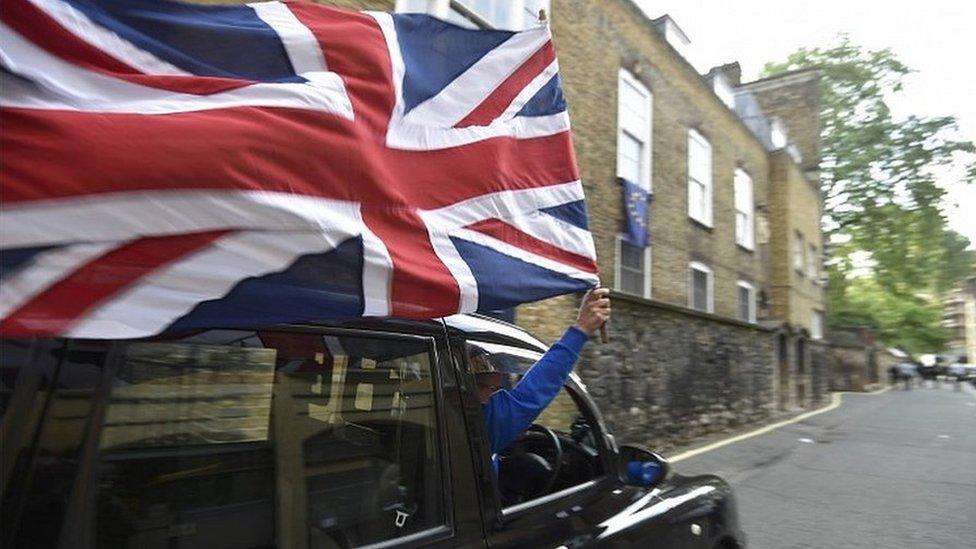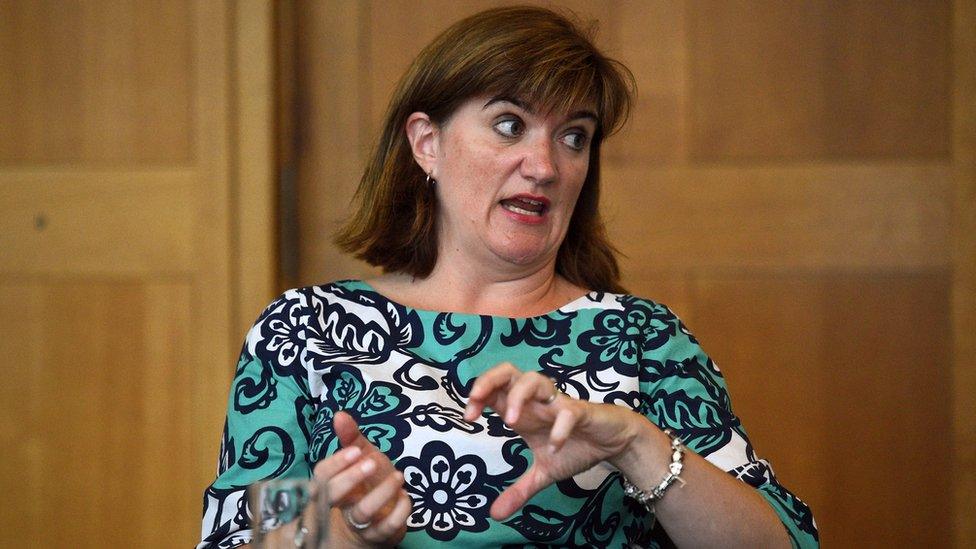MPs demand hedge fund polling crackdown after Brexit claims
- Published

A committee of MPs has called for changes in the rules on opinion polling after a report about hedge funds using them for profit in the EU referendum.
Bloomberg claimed hedge funds made millions using the results of private polling not available to the public.
It said they were able to predict what market-shifting public polls might say.
Treasury committee chairman Nicky Morgan said the reports raised conflict of interest concerns and could damage the integrity of financial markets.
She has written to the British Polling Council calling for changes.
In response, the council said: "We are surprised that the chair of a select committee, whose job is to consider and evaluate evidence, has not waited for a response from the BPC before issuing a statement."
The report by Bloomberg, external in June focused on the use of private polling in the build-up to the 2016 EU referendum.
It said hedge funds were able to get information about polls that affected financial markets in advance of their publication, using private polling they had commissioned.
On polling day, when it was illegal to publicly release opinion polls, Bloomberg said hedge funds had been able to get "critical, advance information" that Leave could win - a result that triggered a sharp fall in the value of the pound.
"The failure to manage this conflict of interest raises doubts over the integrity of the polling industry's business model, and risks damaging the reputation of UK financial markets," Ms Morgan wrote.
'Trading advantage'
She said she was particularly concerned about market-sensitive public polls being "cross-subsidised" with revenue for private polling - and that this data could be made available to private companies before being published.
"Hedge funds and other market participants pay money for private polls because they enable them to gain a trading advantage," she wrote.
"And the greater that advantage, the more they are willing to pay.

Nicky Morgan has written to pollsters on behalf of the Treasury Select Committee
"At best, these practices could undermine public trust and confidence in polls produced during election and referendum campaigns.
"At worst, there could exist a perverse incentive for polling companies to provide misleading or inaccurate information to the media, while providing high-quality analysis on the true state of public opinion to private clients."
The Conservative ex-minister said there was an "overwhelming" case for more transparency, and suggested that people responding to polls should be told their answers might be used to help private companies make money.
Pollsters should also reveal - when they release public polls - whether they have done similar work for private clients, she said, adding that her committee would investigate whether new regulation of the industry is needed if the rules are not changed.
The polling council said Ms Morgan's suggestion that "misleading information" could be provided to the public "should either be substantiated or withdrawn", saying that under its rules all public polls are available online.
It also said private polling was often done for political parties and the government, adding that: "Any requirements to require greater disclosure of private polling would probably have to apply to this activity too."